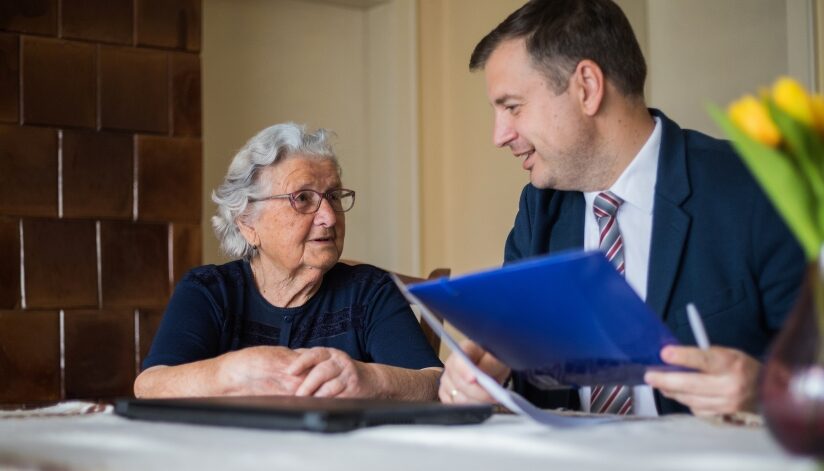How Long Does Probate Take In Wisconsin?
When a loved one passes away, their estate often goes through a legal process called probate. Probate ensures that a deceased person’s debts are paid and their assets are distributed according to their will or, if no will exists, under Wisconsin state law. If you’re navigating the probate process in Wisconsin, one of the most common questions is: How long does probate take?
The timeline can vary based on several factors, but understanding the steps involved and working with an experienced attorney can help streamline the process. At Bosshard Parke, we’re here to guide families in La Crosse, Sparta, and surrounding areas through probate with clarity and confidence.
Understanding The Probate Process
Probate in Wisconsin typically involves the following steps:
- Filing the Petition
- The process begins when a personal representative (also known as an executor) files a petition with the local county probate court.
- Notifying Heirs and Creditors
- The court requires official notices to be sent to beneficiaries, heirs, and creditors, allowing them the opportunity to make claims against the estate.
- Inventorying Assets
- The personal representative must compile a comprehensive inventory of all the deceased person’s assets, including real estate, bank accounts, and personal property that are subject to probate.
- Paying Debts and Taxes
- Before any assets are distributed, outstanding debts, funeral expenses, and any applicable taxes must be paid.
- Distributing the Estate
- After debts are settled, the remaining assets are distributed to the beneficiaries according to the will or state law.
- Closing the Estate
- Once all obligations are fulfilled, the court will officially close the probate case.
How Long Does Probate Take In Wisconsin?
The probate timeline in Wisconsin can range from 6 months to 18 months or longer. On average, most cases are completed within 9 to 12 months. However, several factors can influence how quickly the process moves.
Factors That Can Impact Probate Timelines
- The Size and Complexity of the Estate
- Larger or more complex estates with significant real estate holdings, investments, or business interests often take longer to resolve.
- If There Is A Will
- If the deceased had a clear and valid will in place, probate may proceed more smoothly. Without a will, the court must determine heirs and distribute assets according to Wisconsin intestacy laws, which can take additional time.
- Family Disputes
- Disagreements among beneficiaries over the will’s validity, asset distribution, or the executor’s actions can lead to legal challenges that delay the process.
- Creditor Claims
- Once probate has been filed, creditors typically have 90 days to file claims against the estate. Resolving disputes over unpaid debts can extend probate.
- Tax Complications
- If the estate owes federal or state taxes, filing the appropriate returns and waiting for approval can add months to the timeline.
- Court Schedules
- Probate courts manage numerous cases at once, and hearing delays can occur depending on the county’s caseload.
How An Attorney Can Help Streamline The Process
Navigating probate alone can be overwhelming, especially when grieving the loss of a loved one. Bosshard Parke can provide experienced legal guidance to:
- Ensure Proper Filing: We’ll prepare and file all necessary documents accurately and on time.
- Handle Disputes Efficiently: If conflicts arise, we can mediate disputes or represent you in court to resolve matters quickly.
- Protect the Executor: Acting as a personal representative comes with legal responsibilities. We’ll ensure you fulfill your duties and avoid personal liability.
- Manage Creditor Claims: We’ll help validate legitimate claims, negotiate settlements, and challenge questionable ones.
- Minimize Delays: Our proactive approach helps prevent unnecessary delays by keeping the process organized and compliant with Wisconsin probate laws.
Options For Simplified Probate In Wisconsin
Not all estates require a lengthy probate process. Wisconsin offers simplified probate procedures for smaller estates:
- Summary Settlement: If the estate’s value is under $50,000 and primarily benefits a surviving spouse or minor children, this expedited process may apply.
- Transfer by Affidavit: For estates valued at $50,000 or less, heirs can use a simple affidavit to claim property without court involvement.
- Beneficiary Designation: Bank accounts, stocks and business interests, retirement accounts, life insurance policies, and even real estate can sometimes avoid the probate process if a beneficiary has been properly designated by the decedent to automatically receive the asset on death.
- Revocable Trusts: Revocable trusts, often called living trusts, can be used to avoid or minimize probate by setting up a private trust to receive assets and transfer beneficial or legal ownership on death of the trust settlor without the necessity of court-supervised probate.
We can help determine if your loved one’s estate qualifies for a simplified process, saving time and expenses.
Contact Bosshard Parke For Trusted Probate Guidance
No two probate cases are the same. Whether you’re facing a straightforward probate or dealing with complex legal challenges, our attorneys are here to provide compassionate and knowledgeable representation. We’ll walk you through each step of the process, ensuring your loved one’s wishes are carried out and your rights are protected.
Contact Bosshard Parke today to schedule a consultation. Let us help you navigate Wisconsin’s probate process with confidence and peace of mind.
Disclaimer: This blog post is for informational purposes only and does not constitute legal advice. For personalized legal guidance, please consult an attorney at Bosshard Parke.




